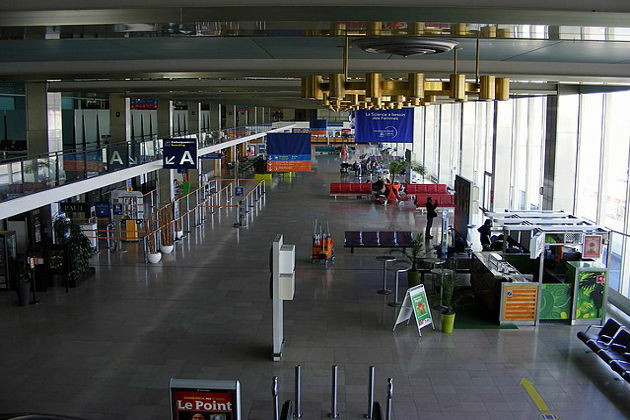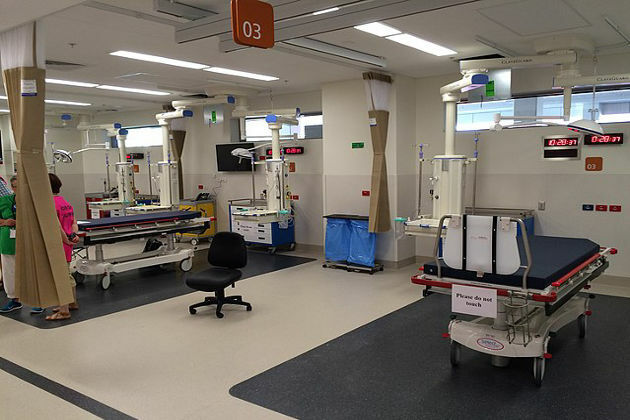Feature: With fewer hands at home, traveling workers play part in Myanmar's farming
Xinhua
09 Jul 2025, 04:45 GMT+10

YANGON, July 8 (Xinhua) -- As the morning sun went down on paddy fields in Myanmar's Yangon region on Tuesday, a group of women moved swiftly in ankle-deep muddy water, planting rice seedlings in perfect rows.
Their laughter rose above the distant hum of a plow machine. These women aren't from this village in Twante township of the Yangon region. They were part of a growing force of mobile female farmworkers traveling across Myanmar to fill labor gaps left by migration.
Rice planting, once a communal tradition involving nearly entire villages, was being reshaped. In rural areas of Yangon, Bago, and Ayeyarwady, many farms now face a pressing challenge: a shortage of local labor.
Aung Phyo Min, a 33-year-old farmer from Twante in the Yangon region who owns 10 acres of rice fields, stood by his uncle's farm, watching both workers and machines in action.
"In the past, nearly all families here would be in the fields," he said. "Now, most of the young people have left for urban areas in Yangon or even abroad. Those who stay are either too old or have found other jobs."
Mechanization has helped, with tractors and harvesters accelerating work on larger plots. But machines can't do everything, especially not the delicate, precise task of planting rice seedlings. Skilled hands are still essential, he said.
"I've worked on farms since I was about 10. My parents were farmers too," Aung Phyo Min said. "I'm passionate about farming, but it's not very profitable these days because farm input prices keep rising."
"We still need people," he added, "so we hire laborers from other regions."
One of them was Khin Moh Moh, 33, a seasonal worker from Zalun township in Ayeyarwady region. She was currently working in Twante, about 100 miles from her home, with a group of 30 women who followed the planting season from village to village.
"I've been here for about a month. I've done this work since I was young. When there's no farm work, I sell things as a vendor. I have two children back home," she said, adjusting her hat under the sun.
Her team earned about 120,000 kyats (57 U.S. dollars) per acre. With 30 women, they can plant up to six acres in a single day. She said they also traveled to Bogale and Pyapon townships of Ayeyarwady region for harvesting and planting.
"This is the only job we've done for a long time," she said. "We sleep in shared huts, cook our meals, and work long hours. It's hard, but it's work."
For many of these women, farming is more than a job. It's a lifeline. Their earnings supported children, siblings, and aging parents. In many families, men work in cities, on construction sites, or in factories, while women work in the fields.
"We support each other," said Khin Moh Moh. "Most of us are mothers. We travel together, look out for each other, and share what we have."
Ma Khaing, 40, has been doing this work for about 30 years. She handled both planting and harvesting, going wherever labor is needed.
"Wages have gone up, but so have expenses," she said. "Thirty years ago, we earned about 2,500 kyats per acre. Now it's 120,000 kyats. But back then, it was enough. Now, it's not."
Their day started at 6 a.m. and ended at 5 p.m., with a two-hour lunch break. "People working in Yangon's factories earn more and do less physical labor. Here, we do harder work for only half the pay," she said.
Elsewhere in the field, U Maung, in his 50s, was spraying pesticide to fight off snails using a gasoline-powered sprayer.
"Machines make our farm work easy. With plowing machines, we can cover up to 20 acres a day," he said. "Most of the young people are in the cities now. Only middle-aged and older folks like us are left in the fields."
"I've been farming all my life. I couldn't move to the city. Although more factories have opened now, I'm already old."
U Kyaw Tun Aye, director-general of the Agricultural Mechanization Department under the Ministry of Agriculture, Livestock and Irrigation, said that mechanization was replacing farmworkers who have migrated to urban areas, and the use of agricultural machinery has surged in recent years, especially the use of combine harvesters.
For Myanmar cultivating approximately 15 million acres of monsoon paddy, traveling farmers were still playing a part.
 Share
Share
 Tweet
Tweet
 Share
Share
 Flip
Flip
 Email
Email
Watch latest videos
Subscribe and Follow
Get a daily dose of Myanmar Sun news through our daily email, its complimentary and keeps you fully up to date with world and business news as well.
News RELEASES
Publish news of your business, community or sports group, personnel appointments, major event and more by submitting a news release to Myanmar Sun.
More InformationSoutheast Asia
SectionTrump signals progress on India Trade, criticizes Japan stance
WASHINGTON, D.C.: President Donald Trump says the United States could soon reach a trade deal with India. He believes this deal would...
Deepti Sharma on cusp of top spot in T20I rankings following heroics in England
New Delhi [India], July 8 (ANI): The race for the top spot in ICC T20I Bowlers' Rankings among women is on, with Indian spinner Deepti...
Nepal PM KP Sharma Oli visits flood hit area of Rasuwa near China border
Rasuwa [Nepal], July 8 (ANI): Nepal Prime Minister KP Sharma Oli on Tuesday late afternoon visited Rasuwa to assess the damage caused...
Turkiye to cooperate for development of Defence industry in Bangladesh
Dhaka [Bangladesh], July 8 (ANI): Turkiye will cooperate for the defence industry in Bangladesh, a top Turkiye's defence official said...
"India will not be deterred by nuclear blackmail": CDS Gen Anil Chauhan
New Delhi [India], July 8 (ANI): Noting that Operation Sindoor is the only example of a conflict between two nuclear-weapon states,...
Indian Under-15 wrestling teams shine at 2025 Asian Championships in Bishkek
New Delhi [India], July 8 (ANI): The Indian Under-15 wrestling teams delivered an outstanding performance at the 2025 Under-15 Asian...
International
SectionFans perform WWII-era Fascist salute at Marko Perković’s mega concert
ZAGREB, Croatia: A massive concert by popular Croatian singer Marko Perković, known by his stage name Thompson, has drawn widespread...
U.S. Treasury Secretary says Musk should steer clear of politics
WASHINGTON, D.C.: Elon Musk's entry into the political arena is drawing pushback from top U.S. officials and investors, as his decision...
TikTok building U.S.-only app amid pressure to finalise sale
CULVER CITY, California: TikTok is preparing to roll out a separate version of its app for U.S. users, as efforts to secure a sale...
Trump defends use of 'Shylock,' citing ignorance of slur
WASHINGTON, D.C.: President Donald Trump claimed he was unaware that the term shylock is regarded as antisemitic when he used it in...
Summer travel in chaos as French air traffic controllers walk off job
PARIS, France: A strike by French air traffic controllers demanding improved working conditions caused significant disruptions during...
Congress weighs Medicaid cuts, sparking alarm in small-town hospitals
OMAHA, Nebraska: With Congress considering cuts totaling around US$1 trillion to Medicaid over the next decade, concerns are rising...













